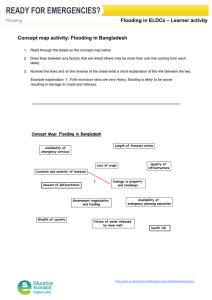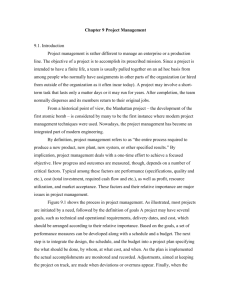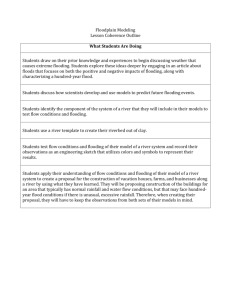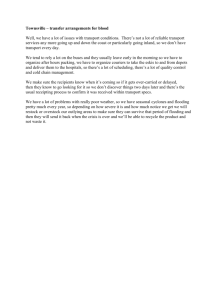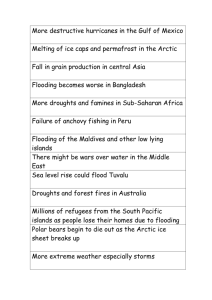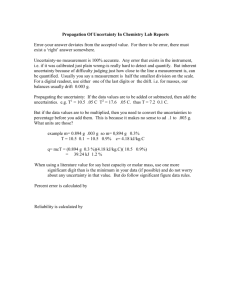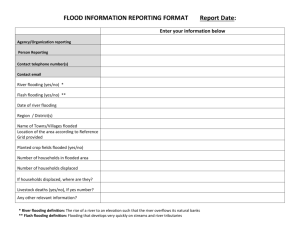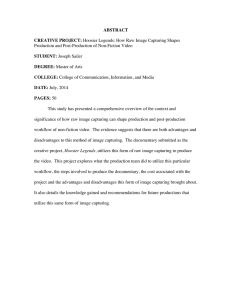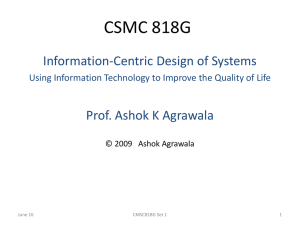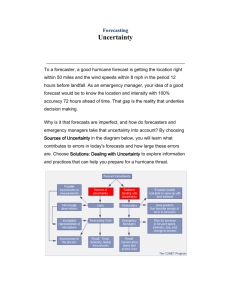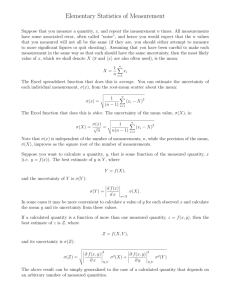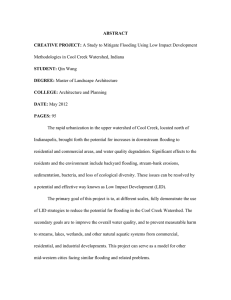Quick Risk Reference
advertisement
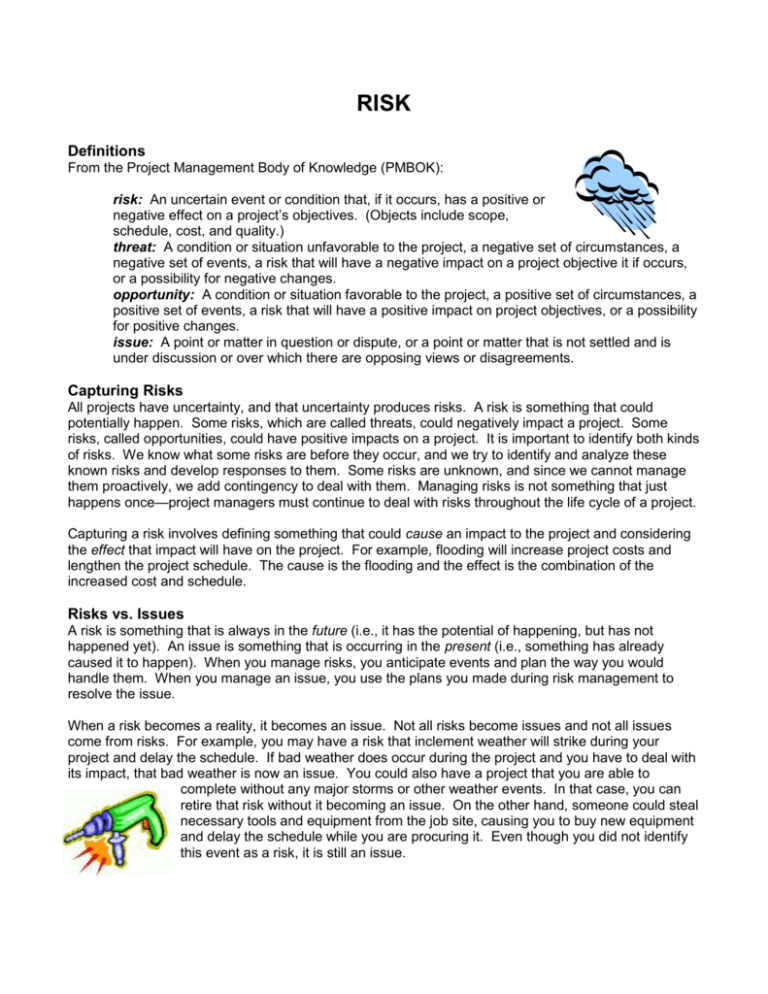
RISK Definitions From the Project Management Body of Knowledge (PMBOK): risk: An uncertain event or condition that, if it occurs, has a positive or negative effect on a project’s objectives. (Objects include scope, schedule, cost, and quality.) threat: A condition or situation unfavorable to the project, a negative set of circumstances, a negative set of events, a risk that will have a negative impact on a project objective it if occurs, or a possibility for negative changes. opportunity: A condition or situation favorable to the project, a positive set of circumstances, a positive set of events, a risk that will have a positive impact on project objectives, or a possibility for positive changes. issue: A point or matter in question or dispute, or a point or matter that is not settled and is under discussion or over which there are opposing views or disagreements. Capturing Risks All projects have uncertainty, and that uncertainty produces risks. A risk is something that could potentially happen. Some risks, which are called threats, could negatively impact a project. Some risks, called opportunities, could have positive impacts on a project. It is important to identify both kinds of risks. We know what some risks are before they occur, and we try to identify and analyze these known risks and develop responses to them. Some risks are unknown, and since we cannot manage them proactively, we add contingency to deal with them. Managing risks is not something that just happens once—project managers must continue to deal with risks throughout the life cycle of a project. Capturing a risk involves defining something that could cause an impact to the project and considering the effect that impact will have on the project. For example, flooding will increase project costs and lengthen the project schedule. The cause is the flooding and the effect is the combination of the increased cost and schedule. Risks vs. Issues A risk is something that is always in the future (i.e., it has the potential of happening, but has not happened yet). An issue is something that is occurring in the present (i.e., something has already caused it to happen). When you manage risks, you anticipate events and plan the way you would handle them. When you manage an issue, you use the plans you made during risk management to resolve the issue. When a risk becomes a reality, it becomes an issue. Not all risks become issues and not all issues come from risks. For example, you may have a risk that inclement weather will strike during your project and delay the schedule. If bad weather does occur during the project and you have to deal with its impact, that bad weather is now an issue. You could also have a project that you are able to complete without any major storms or other weather events. In that case, you can retire that risk without it becoming an issue. On the other hand, someone could steal necessary tools and equipment from the job site, causing you to buy new equipment and delay the schedule while you are procuring it. Even though you did not identify this event as a risk, it is still an issue.
